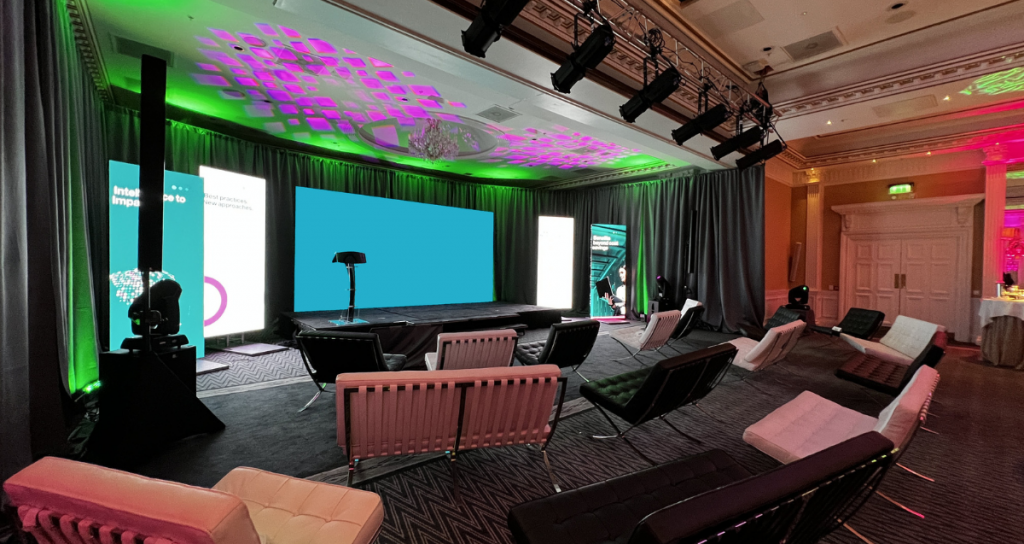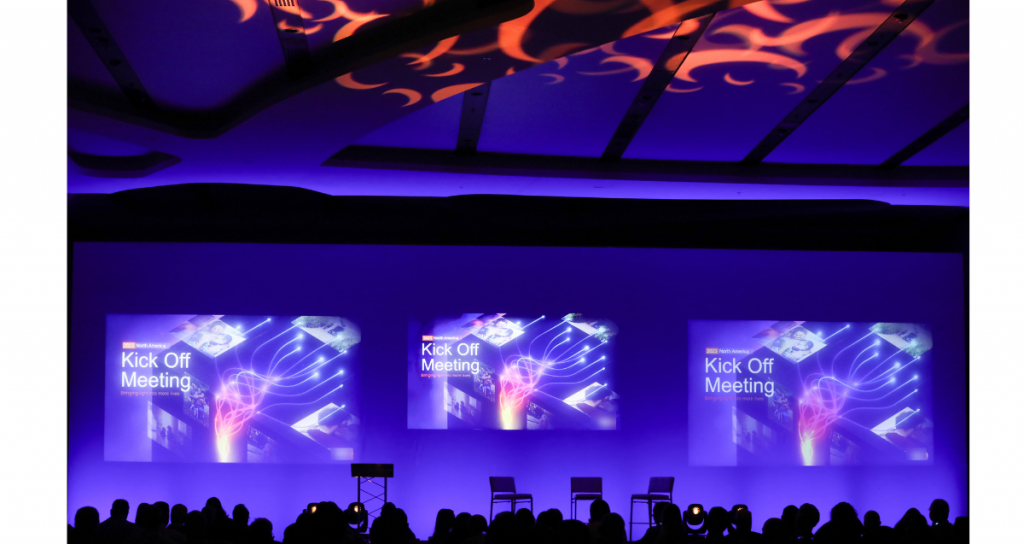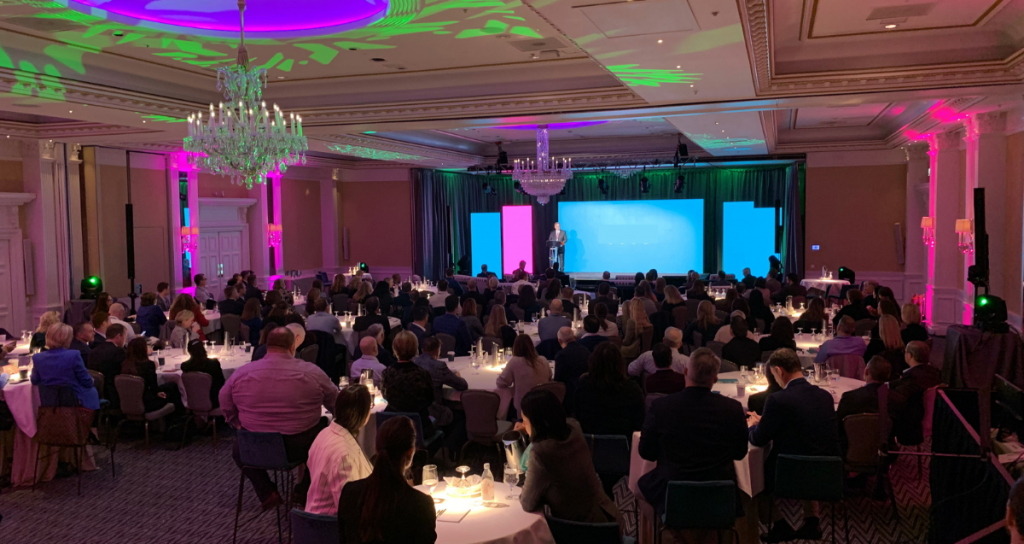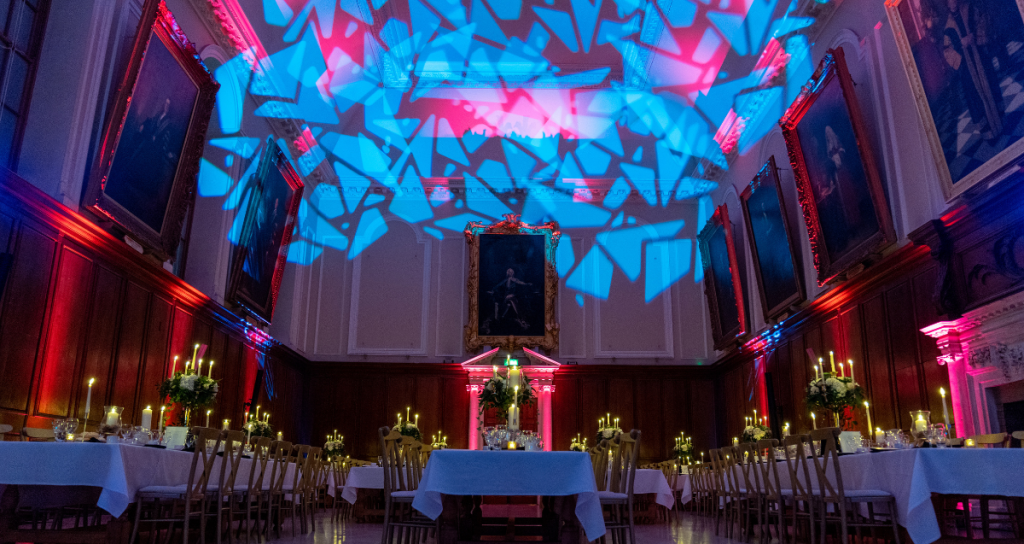
Bart Alazio, MTA Senior Global Experience Manager – Production, shares why event production is the be-all and end-all for any and every event.
Why Event Production Matters
What services are typically defined as part of event production?
If it plugs into a wall, then it falls under production services. And what I mean by that is – everything that is connected from internet to audio/visual lighting is all centralized at the AV table. It’s the brain of the meeting production and if there’s anything that intertwines with that at all, it falls under our spectrum of services. So whether that’s internet power that requires power to each table, then that would fall under the production scope of work.
What are some common misconceptions that you often encounter regarding event production?
There’s a lot of preparation that goes into the production of even the smallest event. And that starts in the preparation and planning for the event. That dives into finding out what the customer’s end goal of the event is in terms of what message they’re trying to get to the audience. Customers will invest a lot of money into having a face-to-face meeting or even a virtual event. And our job is to make sure we maximize the value of that investment.

What are some production essentials that every in-person event must have in order to ensure a successful event experience?
There are four essential in-person event must-haves in order to ensure a successful experience – good audio, good visuals, which include the content, good lighting, and most importantly a good production partner.

How would you define a good production partner?
A good production partner is one that listens, but ultimately will lead the customer into the right decisions and that’s based on their experience, their professionalism, and ultimately the outcome.
Why is it important to have production backups and redundancies in place for every event?
Having redundancies is a way to minimize the impact of the things that happen that aren’t planned for. There’s the practical backup and redundancy, for example, if one microphone’s battery dies or there’s interference on that frequency, you would want to have multiple options to ensure a smooth transition so when something does happen there’s multiple layers to backup and redundancies and why we would have them in place, especially in production.
But ultimately, the goal with production is for people to realize that we were never really there or to think that we were never there. Because if people are turning around in the meeting room and looking back at the tech table, that usually means that something went wrong. So the more people don’t think about us, the more successful the event actually is.

Why is it important to have redundancies in production team members in place for every event?
The reason we would have redundancies in production team members on site is because things do change quite a bit, especially into the last second that a presenter might go on stage. If you’re asking one person to do one or two tasks that’s very well within the scope of capabilities of a good production member. However, a lot of times there may be something as simple as a slide change while a speaker needs to get microphoned; there may be a question from another presenter about the next presentation. Having multiple team members on site with very specific assigned tasks to minimize the load ensures that when things do get congested or bogged up, there’s enough resources on site to spread that to multiple team members who handle their individual responsibilities to make a smooth production.
MTA production is so good at explaining the why – why do you need these redundancies? It’s priceless because the client ultimately wants to go in and focus on what they need to do. They don’t need to think about what’s happening in the background of production. You hire experts so you don’t have to worry.

What are the most important AV production considerations when planning an event?
When you ask what is the most important AV production considerations when planning event, you would tend to think about screen size or amount of microphones or the type of lighting you’d bring into the room. But I think it actually comes down to what is the customer’s goal. Ultimately, it’s the message, right? That’s what the production is there to do – support and enhance the delivery of that message. That message could either be enhanced or disrupted by improper production execution, such as the wrong screen size. There is such a thing as having too small of a screen for the amount of people or overproducing a meeting and over complicating it. Ultimately, understanding what the customer wants the attendees to take home from the event is really what dictates the production in terms of equipment, staffing, and ideation.
Production is everything. Without production, there is no meaning. There’s no point in bringing people together unless production is sufficiently executed to bring that message home.
What questions should one ask to best determine their production needs?
Ultimately, I would say a question any customer should ask a production team is what do you [Production Team] suggest; the Production Team are the professionals and experts with the experience in producing an event and, a good production partner, ultimately will lead you in the right direction to maximize your message, which is ultimately our goal.
What aspects are generally considered when determining the cost of production?
It starts with location, location, location. It is the starting point for all production – the city location, the venue location, and the room. Because all of those impact the type of production we need, and the equipment that we need, depending on the message that you want your attendees to take home. Room size really is foundational into how we start building out what production needs are needed. And that is at the very core of the early decision making such as whether we go rear screen or front screen; obviously we would love to go rear screen, but sometimes the room dictates that it must be front screen. And so, we need to then adapt and adjust the setup and, the equipment needed to execute that in the standard that MTA would have.
Is the event production worth the investment?
This is going to be a completely biased answer but, of course, event production is always worth the investment. And I’m not just coming and saying, the technology is really cool, so you should push your boundaries and invest more money into emerging technologies. In my heart of hearts, it really comes down to the client’s making an investment in bringing people together. They’re flying them in; putting them up in a hotel or housing; feeding them and bringing them together for this core reason for this one day – it’s ultimately to have them go home learning something or taking something home with them.
For example, in clinical [meetings] they’re there to learn the protocol; for an investigator meeting, they want that message to be clear; you don’t want them leaving with questions because they couldn’t see the font on the slide deck or the presenter couldn’t be heard. And so production is everything. Without production, there is no meaning. There’s no point in bringing people together unless production is sufficiently executed to bring that message home.


